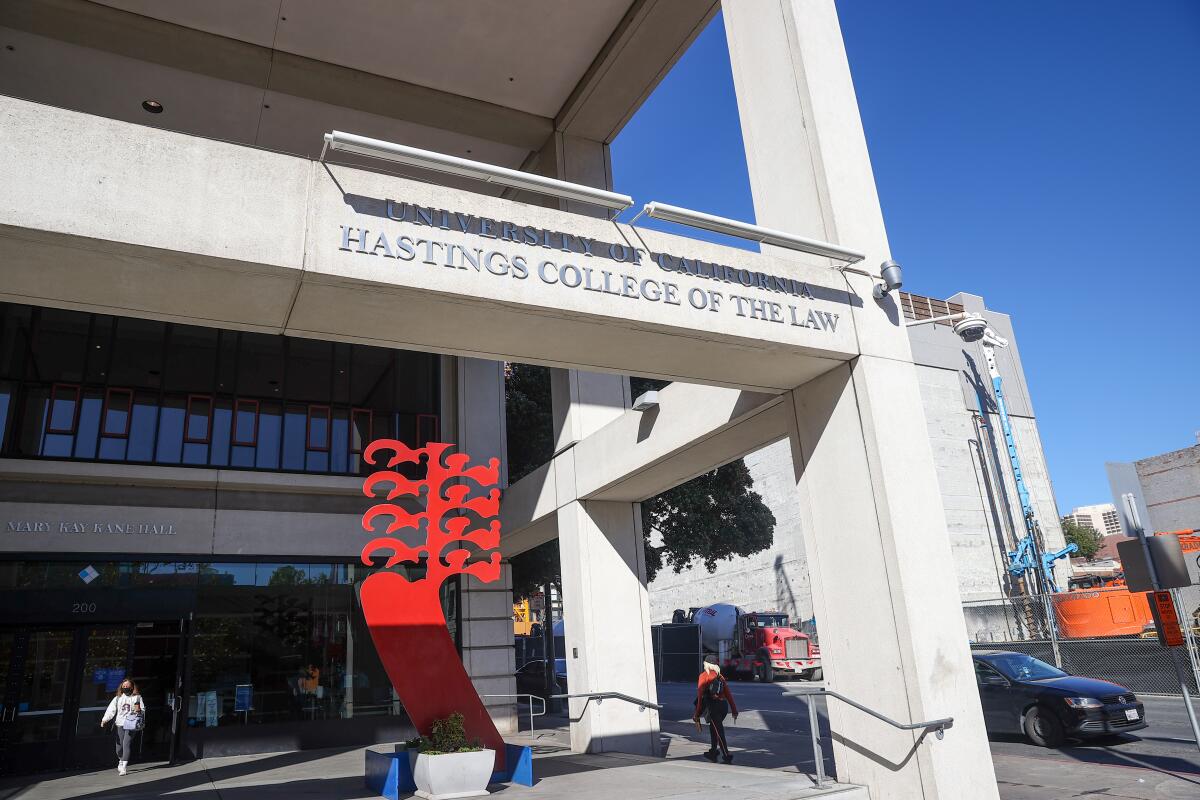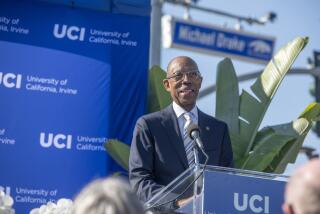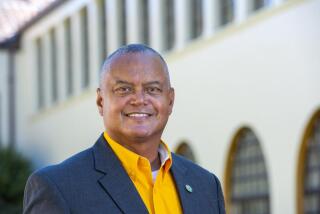UC Hastings College of the Law to rename school after reviewing founder’s role in mass killings of Yuki Indians

The UC Hastings College of the Law, California’s first law school, will soon no longer bear the name of its founder, Serranus Clinton Hastings, whose legacy includes profiting off the killings and displacement of Native Americans in Northern California.
The school’s board of directors voted Tuesday to change the college’s name after years of research and input from Yuki tribal members, whose ancestors were targeted by Hastings. The decision came after the school’s dean and chancellor, David Faigman, commissioned the Hastings Legacy Review Committee to provide a report and recommendations following an op-ed piece by a former adjunct professor that detailed Hasting’s role in the killing of Native Americans during the 1850s and ’60s.
In an interview Friday, Faigman said the report, which was delivered to the board of directors on Sept. 11, 2020, “told a very disturbing and horrific story of Hastings promoting genocide to his own benefit.” It found that Hastings, who came to California during the Gold Rush era, paid for and promoted expeditions in the Eden and Round Valleys of Northern California that resulted in the deaths and displacement of hundreds of Yuki Indians, whose land he later took for himself. Hastings later donated $100,000 in gold coins to the state to establish the law school in San Francisco.
“The effects of Serranus Hastings’ crimes against humanity echo in the conditions prevailing today for the descendants of his victims,” the report said.
The college counts Vice President Kamala Harris and U.S. Rep. Jackie Speier (D-Hillsborough) among its most notable alumni. Some alumni have said the college has moved slowly in removing Hastings’ name.
The issue of renaming the school was never off the table, Faigman said, and instead the college prioritized other restorative justice initiatives. The report’s findings are an opportunity to “atone” for sins of the past and begin to build a relationship with the Yuki tribe, Faigman said in a letter to the board. Hastings was previously mostly celebrated as the first chief justice of the California Supreme Court.
Since 2017, Faigman said the college has worked to build a relationship with members of the Round Valley Indian Tribes, which includes the Yuki people and other tribes, including visits to the confederation’s reservation in Mendocino County. Faigman said his own ambivalence about removing Hastings’ name has evolved, and he, like the board, supports the removal.
“I absolutely agree with a lot of people’s views, that Serranus Hastings, the acts that he committed were absolutely horrific and ought not to be honored,” Faigman said.
In an op-ed piece in the Sacramento Bee, Faigman and James Russ, the president of the Round Valley Indian Tribes, said a recurring “principal grievance” of the tribe’s representatives was the erasure of Native Americans from California history.
“Erasing the Hastings name would not remedy that continuing insult,” the two wrote.
Instead, they advocated building a partnership in which the horrors suffered by Indigenous people, including the Yuki tribe, would be recognized and one in which the law school would use its resources to assist descendants. Faigman said one of these efforts will include bringing middle and high schoolers from the Round Valley Indian Tribes to San Francisco to work with the college’s law professors on moot court sessions and practice debating.
In 2020, the college established the Indigenous Law Center, aimed to increase the school’s Indigenous law curriculum. The college has also created a commemorative space for the Yuki tribe in the building’s lobby, where stories of the Yuki people are centered. It also received a grant of $25,000 to record the narratives of Yuki elders and make them publicly available to students.
“There’s a lot of opportunities yet for these kinds of collaborations,” Faigman said.
California educational institutions have been reevaluating historical building names as the legacies of those namesakes are challenged. In 2020, UC Berkeley renamed Boalt Hall, which housed its law school, two years after the university confronted John Henry Boalt’s anti-Chinese sentiments. Alfred Louis Kroeber’s name was also removed from a UC Berkeley building after a committee found the anthropologist’s work on Native American remains to be “immoral and unethical.”
Because the name UC Hastings is codified in state law, legislation will be required to cement the change. The college has not decided on an alternative, Faigman said. The board includes Claes Lewenhaupt, an alumni and direct descendant of Hastings.
Joe Cotchett, a trial lawyer and prominent donor, said he and other alumni had pressured the board and the dean to enact a name change.
“We cannot have a public institution with the prominence that it has named after someone that committed genocide on Native California Indians,” he said. Cotchett, who donated $5 million for the college’s academic village, said he at one point made it clear that if the name wasn’t changed, he would pull his name from Cotchett Law Center because he did not want his name associated with school.
With the board’s decision to support a name change, he said he was delighted that the process was moving forward.
“It’s only going to increase my support for the school, and I think that’s the same with a lot of alumni that recognize the goodness that’s been done,” he said.
More to Read
Sign up for Essential California
The most important California stories and recommendations in your inbox every morning.
You may occasionally receive promotional content from the Los Angeles Times.











